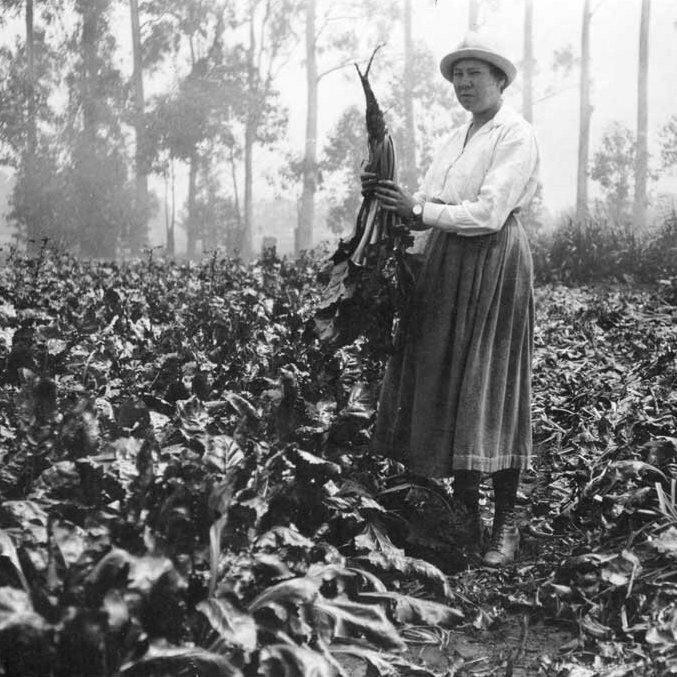
“Katherine Esau, the Immigrant Beet Biologist who Transformed Plant Science”
Lady Science
18 February 2021
“During the 19th and 20th centuries, the temperate world tried to turn beets' sugar content into a cash crop that could compete with tropical sugarcane. The industry made the rural, semi-arid American West and Midwest into fields dominated by corporate capitalism and brought German-Russian, Mexican, Chicano, Japanese, Chinese, and Native workers to work them. In the 79,000 acres planted in sugar beets in Colorado in 1909, for instance, 5,870 workers were German-Russian, 2,160 were Japanese, and 1,002 were Hispanic southern Coloradans and northern New Mexicans.
Esau was part of these flows of beet geopolitics, but in an unusual and privileged way. Esau’s life took her from refugee to ranch foreman, industry scientist to National Medal of Science winner. Yet by leaving the beet industry to become a research scientist, she enacted a politics of refusal, resisting the global, capitalist industry that defined her own mobility, seeking to understand plants rather than control them.“
Lady Science
18 February 2021
“During the 19th and 20th centuries, the temperate world tried to turn beets' sugar content into a cash crop that could compete with tropical sugarcane. The industry made the rural, semi-arid American West and Midwest into fields dominated by corporate capitalism and brought German-Russian, Mexican, Chicano, Japanese, Chinese, and Native workers to work them. In the 79,000 acres planted in sugar beets in Colorado in 1909, for instance, 5,870 workers were German-Russian, 2,160 were Japanese, and 1,002 were Hispanic southern Coloradans and northern New Mexicans.
Esau was part of these flows of beet geopolitics, but in an unusual and privileged way. Esau’s life took her from refugee to ranch foreman, industry scientist to National Medal of Science winner. Yet by leaving the beet industry to become a research scientist, she enacted a politics of refusal, resisting the global, capitalist industry that defined her own mobility, seeking to understand plants rather than control them.“

